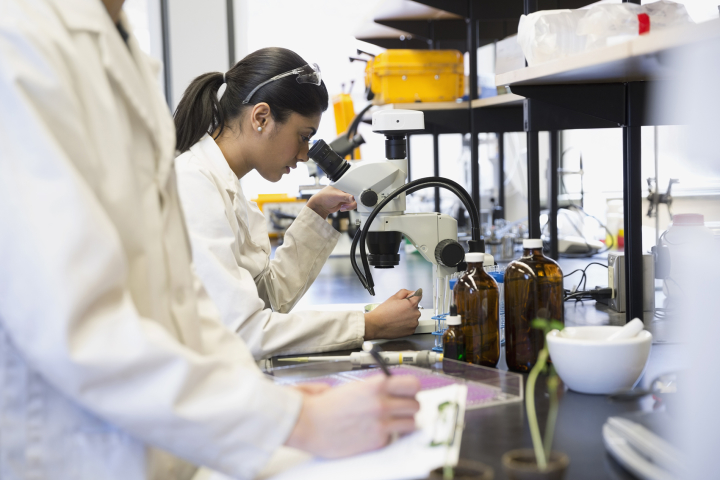Unlock Findings A Guide to Effective Experimental Research

experimental research In the realm of scientific inquiry and innovation, experimental research stands out as a powerful method for uncovering causal relationships and validating hypotheses. This systematic approach involves manipulating variables to observe their effects, providing a robust framework for generating new knowledge and solving complex problems. Whether you’re a seasoned researcher or just starting out, understanding the principles and practices of experimental research is essential for unlocking valuable findings and advancing your field. This guide will illuminate the path to effective experimental research with practical tips and strategies for achieving meaningful results.

The Fundamentals of Experimental Research
Experimental research is a methodical approach used to investigate causal relationships between variables. It typically involves the manipulation of an independent variable to observe its effect on a dependent variable, while controlling for extraneous factors.
What is Experimental Research?
Experimental research is characterized by the following key components:
- Manipulation: Deliberately changing one or more independent variables to assess their impact on dependent variables.
- Control: Maintaining consistency in extraneous variables to ensure that observed effects are attributable to the manipulated variables.
- Randomization: Randomly assigning participants or subjects to different experimental conditions to reduce bias and ensure generalizability.
These components work together to establish causal links and validate hypotheses, making experimental research a cornerstone of empirical science.
Designing Effective Experimental Research
Designing a robust experimental research study requires careful planning and consideration. Here are some essential steps to guide you through the process:
1. Define Your Research Question
A well-defined research question is the starting point for any successful experimental research project. It should be specific, measurable, and focused on exploring causal relationships.
- Specify Variables: Clearly identify the independent and dependent variables you intend to study. The independent variable is the one you manipulate, while the dependent variable is the one you measure.
- Formulate Hypotheses: Develop testable hypotheses that predict how changes in the independent variable will affect the dependent variable.
A precise research question and hypotheses provide direction and focus for your experimental research.
2. Choose an Experimental Design
Selecting an appropriate experimental design is crucial for ensuring the validity and reliability of your findings. Common designs include:
- Randomized Controlled Trials (RCTs): Participants are randomly assigned to either the experimental group or the control group. This design is considered the gold standard for establishing causality.
- Between-Subjects Design: Different groups of participants are exposed to different levels of the independent variable. This design helps to control for individual differences.
- Within-Subjects Design: The same participants are exposed to all levels of the independent variable. This design controls for variability between participants and is useful for studying effects over time.
Choose a design that aligns with your research objectives and helps to address potential sources of bias.
3. Develop a Detailed Procedure
A clear and detailed procedure is essential for conducting experimental research consistently and effectively. This includes:
- Operational Definitions: Define how you will measure and manipulate the variables. For example, specify the exact procedure for administering treatments and recording outcomes.
- Instructions and Training: Provide clear instructions to participants and train any assistants or researchers involved in the study to ensure consistency.
A well-documented procedure ensures that your experimental research is replicable and that the results are reliable.
4. Control Extraneous Variables
Controlling for extraneous variables is crucial for isolating the effects of the independent variable and ensuring that your findings are valid.
- Use Control Groups: Include a control group that does not receive the experimental treatment to compare against the group that does.
- Random Assignment: Randomly assign participants to different groups to reduce the likelihood of bias.
- Match Participants: In some cases, you may match participants based on relevant characteristics to ensure equivalency between groups.
Effective control of extraneous variables enhances the internal validity of your experimental research.
5. Collect and Analyze Data
The data collection phase involves gathering information according to your procedure, while the analysis phase involves interpreting the results.
- Data Collection: Use reliable and valid instruments to measure your dependent variable. Ensure that data collection procedures are consistent across all participants.
- Data Analysis: Apply appropriate statistical methods to analyze the data and test your hypotheses. This may include t-tests, ANOVAs, regression analysis, or other techniques depending on the design and objectives of your study.
Accurate data collection and analysis are critical for drawing meaningful conclusions from your experimental research.
Best Practices for Experimental Research
To maximize the effectiveness of your experimental research, consider the following best practices:
1. Ensure Ethical Conduct
Ethical considerations are paramount in experimental research. Adhere to ethical guidelines to protect participants and ensure the integrity of your study.
- Informed Consent: Obtain informed consent from all participants, ensuring they understand the nature of the study and any potential risks.
- Confidentiality: Maintain confidentiality of participants’ data and ensure that it is used only for the purposes of the research.
- Debriefing: Provide a debriefing session for participants to explain the study’s purpose and address any concerns.
Ethical conduct fosters trust and ensures that your experimental research adheres to professional standards.
2. Pilot Your Study
Conducting a pilot study can help identify potential issues and refine your procedures before launching the full-scale experiment.
- Test Procedures: Use the pilot study to test your procedures, instruments, and data collection methods.
- Gather Feedback: Collect feedback from participants and researchers to identify areas for improvement.
A pilot study helps to fine-tune your experimental research and enhance its effectiveness.
3. Document and Report Findings
Thorough documentation and transparent reporting are essential for sharing your findings and contributing to the scientific community.
- Keep Detailed Records: Document all aspects of the study, including procedures, data collection methods, and analysis.
- Report Results: Present your findings in a clear and detailed manner, including statistical analyses and interpretations. Discuss the implications of your results and any limitations of the study.
Comprehensive documentation and reporting ensure that your experimental research is accessible and valuable to others in the field.
4. Review and Revise
After completing your experimental research, review and revise your work to ensure its accuracy and completeness.
- Seek Peer Review: Submit your study for peer review to receive constructive feedback and validation from experts in the field.
- Revise Based on Feedback: Incorporate feedback and make necessary revisions to improve the quality of your research.
Reviewing and revising enhance the credibility and impact of your experimental research.
Real-World Applications of Experimental Research
Experimental has broad applications across various fields, providing valuable insights and advancing knowledge.
1. Medicine
In medicine, research is used to evaluate new treatments, drugs, and medical interventions.
- Clinical Trials: Conduct clinical trials to test the efficacy and safety of new medications or therapies.
- Comparative Studies: Compare different treatment approaches to determine the most effective options for patients.
Experimental research drives medical advancements and improves patient care.
2. Psychology
In psychology, research helps to understand human behavior, cognition, and emotion.
- Behavioral Experiments: Investigate the effects of different stimuli or interventions on behavior and psychological responses.
- Cognitive Studies: Examine how cognitive processes, such as memory and perception, are influenced by various factors.
Experimental contributes to a deeper understanding of psychological phenomena and informs therapeutic practices.
3. Education
In education, experimental research is used to evaluate teaching methods, curricula, and educational interventions.
- Instructional Studies: Test the effectiveness of different instructional strategies and materials on student learning outcomes.
- Intervention Programs: Assess the impact of educational programs or interventions on student performance and engagement.
Experimental research enhances educational practices and promotes effective learning environments.
experimental research
Mastering experimental research is key to unlocking valuable findings and advancing knowledge in your field. By defining clear research questions, choosing appropriate designs, controlling extraneous variables, and following best practices, you can conduct rigorous and impactful research. Embrace the principles of research to explore causal relationships, validate hypotheses, and contribute to the scientific community. Whether in medicine, psychology, education, or any other discipline, effective experimental paves the way for innovation and discovery, driving progress and improving lives.







